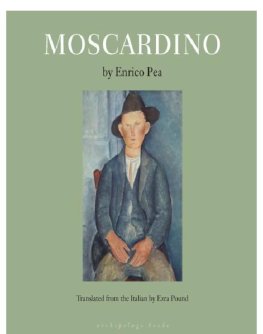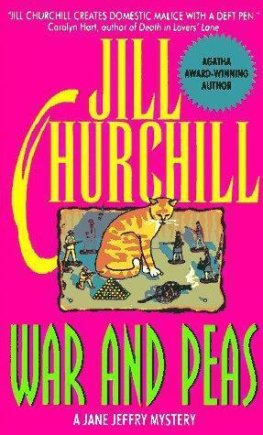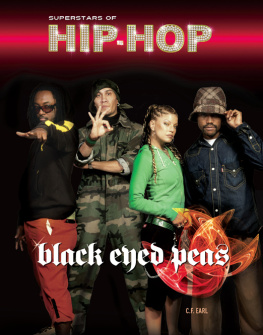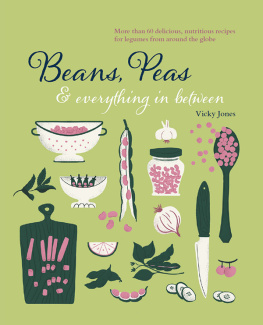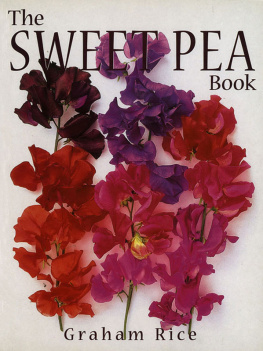EP/EP: Ezra Pound Enrico Pea
I think its fair to say that Ezra Pound preferred novelists who at heart were poets. As for contemporary Italian writers, he was mainly interested in prose flavored by the earth: speech he heard from peasants, descriptions of people he met in the street; irrational, violent, yet wise characters mostly, as we find them in Tozzi and in Enrico Pea. Nothing abstract. E.P. and E.P. have both left us vivid descriptions of each other and their meetings, so we need not embroider.
I remember well the enthusiasm with which my father encouraged me to translate Thomas Hardys Under the Greenwood Tree. He said he had met the best Italian writer and that as soon as I had a presentable chapter typed up, he would show the manuscript to him, because his opinion would count more than his own and he might have some good advice. Pound had already obtained Peas permission to translate Moscardino, but he did not know who owned Hardys copyright, or how one might secure it. However, the main thing was to get the job done, almost like running a race, as well as to learn the profession since I could not go to school. (In 1941, I had to leave school because of the war.)
The humility and the gentleness, the fun and the efficiency of Pounds behavior in his family circle is too often overshadowed by his public imperatives and even more so by the misreadings of outsiders. He knew that my language skills were insufficient for the task, just as he knew that there was no chance of getting his own translation published with the war going on.
In his first letter to Pea he addresses him as colleague:
Egregio Collega
If you have no better offer, I ask permission to translate Moscardino into English. I am almost convinced of the impossibility of finding a publisher either in England or in the USA, but the book interests me and I am ready to give it a try.
The logistic problems seem to me purely theoretical, nevertheless I would like to know your feelings about it. I dont foresee a lucrative business either for author or translator. Mah!
Anyway, accept my sentiments, etc. I did not know that narrative art had reached Italy. .
Cordialissimi saluti. .
In general I have believed that the earnings should, if any there be, go approximately to the author and to the translator.
Pea answered promptly on June 13, 1941:
Caro amico
You will have noticed that my work presents some difficulties also because of certain idiomatic words and ways of speaking in Versilia. Nevertheless I am glad for the request you make because Moscardino can be translated only by a man with a lively and modern spirit like yourself.[. .]
And thus the work began and, in time, I learned a new word: redola, etymology uncertain, which I had never heard from my Italian teacher in Florence, but which fits Hardys lane, in disaccord with the general terms in the dictionary. One of my most cherished typescripts remains that first chapter with penned corrections by E.P. and E.P. At sixteen it held promises of future glory. Now I can laugh about the absolute inadequacy of my translation, which of course was never fit to be published. But the awareness of how deeply concerned Pound was not only with good writing, but also with my education, moves me deeply.
It was thanks to the publisher, Vanni Scheiwiller, that Enrico Pea wrote his grazie, Ezra Pound for STAGIONE, 1955, a number dedicated to Ezra Pound on his seventieth birthday, with contributions solicited from the best Italian writers, who were concerned about Pounds detention at Saint Elisabeths, from Accrocca and Anceschi to Bartoolini, Bertolucci, Betocchi, Bigongiari, Caproni, Carrieri, Falla-cara, Giudici, Guidacci, Jahier, Luzi, Montale, Prampolini, Prezzolini, Quasimodo, Sereni, Soffici, Spaziani, Traverso, and Valeri. Scheiwiller himself, in his editorial, quoted Giovanni Papinis appeal on Pounds behalf to the American ambassador, Mrs. Luce, adding another string of names. It would seem that the Italian writers cared more about the poets fate than his compatriots.
Vanni was barely twenty at the time (he was born in 1934) and had already published Pounds Lavoro ed Usura (1954), Tre Cantos (1954), and Confucio: Studio Integrale e LAsse che non vacilla (1955). He then, with some difficulty, got permission from Pounds U.S. publisher, James Laughlin of New Directions, at Pounds instigation, to publish Moscardino in 1956; Peas text, translated by John Drummond, served as introduction. The little volume was printed by the prince of printers, Giovanni Mardersteig, at his Stamperia Valdonega in Verona in one thousand copies of which perhaps one hundred were sold. Pounds own record had to be aired on October 26, 1941, under the title Books and Music:
So a few weeks ago Monotti sez: ever read Peas Moscardino? So I read it, and for the first time in your colloquitors life he wuz tempted to TRANSLATE a novel, and did so. Ten years ago I had seen Enrico Pea passin along the sea front and Gino [Saviotti] sez: Its a novelist. Having seen and known POLLEN IDEN, some hundreds, or probably thousands I was not interested in its being a novelist. But the book must be good or I wouldnt be more convinced of the fact AFTER having translated it, than I was before. Of course my act was impractical so far as you are concerned. I havent the ghost of an idea how I am going to get the manuscript to America or get it published. Pea has never made a cent out of the original. Well neither had Joyce nor Eliot when I started trying to git someone to print em.
Whats it like? Well, if Tom Hardy had been born a lot later, and lived in the hills up back the Lunigiana, which is down along the coast here, and if Hardy hadnt writ what ole Fordie used to call that sort of small town paper journalese. And if a lot of other things, includin temperament, had been different, and so forth. . that might have been something like Peas writin which I repeat is good writing and was back in 1921 when Moscardino was printed. Moscardino is the name of the kid who is tellin about his grandpop, a nickname like Buck.
As soon as the barriers are down I shall be sendin a copy along for the enlightenment of the American public.
In the meantime, if anyone wants to learn how to write Italian let em read the first chapter of Forastiero [Il forestiero, Firenze 1937] or the couple of pages on the bloke who had been twenty years in jail. This is just announcin that Italy has a writer, and it is some time since I told anybody that ANY country on earth had a writer. Like Confucius, knocked round and done all sorts of jobs. Writes like a man who could make a good piece of mahogany furniture.
That furniture got immortalized in Canto 80:
[. .]
reminding me of the Bank of Egypt and the gold bars in old Meneliks palace and the mahogany counters and desk work in the branch in, was it, Alexandria put there by Pea (Enrico)
[. .]
In Pisa, Pound must have remembered his conversations with Pea. Perhaps he had, at the time, encouraged him to write about his life in Egypt. Vita in Egitto was published in 1949.
I dont know what other books by Pea Pound read at Saint Elisabeths. Theres an amusing letter in which Pound informs Pea that William Rufus, King of England, un fiol di canass (son of a bitch), used to swear by the volto sacro di Lucca. Can you tell me if the famous crucifix is still in Lucca? Vultus Sanctus, scolpito da Nicedemo. I dont know at the moment if I can use it, but perhaps there are some jokes or some local anecdote, like that donkey in Verona about which the Rev. Cav. Dott. Alesssandrro RRRobertson of the Scotch Church in Venice got so excited.

